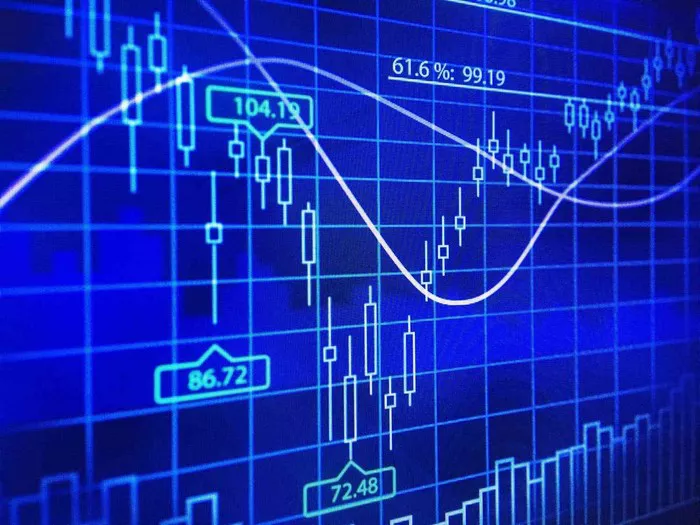As the cryptocurrency market continues to evolve, investors and traders are seeking new avenues to gain exposure to digital assets such as Ethereum (ETH). One such avenue is through Ethereum futures contracts, which allow market participants to speculate on the future price movements of ETH and hedge against price volatility. In this article, we’ll explore the symbol for ETH futures, the mechanics of trading Ethereum futures, and the factors influencing their pricing and popularity in the cryptocurrency derivatives market.
Understanding Ethereum Futures
Ethereum futures are financial contracts that enable traders to buy or sell Ethereum at a predetermined price on a future date. These contracts derive their value from the price of Ethereum and are traded on futures exchanges, providing investors with a regulated and transparent marketplace for trading cryptocurrency derivatives. Ethereum futures allow traders to gain exposure to ETH without the need to own or store the underlying asset, making them a popular choice for speculators and institutional investors seeking to capitalize on price movements in the Ethereum market.
The Symbol for ETH Futures
The symbol for Ethereum futures varies depending on the futures exchange where the contracts are traded. However, the most commonly used symbol for Ethereum futures is “ETH,” followed by a suffix or identifier denoting the specific contract expiration month. For example, a futures contract expiring in March 2023 may have the symbol “ETH23,” indicating that it is an Ethereum futures contract expiring in March 2023. Traders can use these symbols to identify and trade Ethereum futures contracts on futures exchanges that offer cryptocurrency derivatives trading.
Trading Ethereum Futures
Trading Ethereum futures involves several key steps, including selecting a futures exchange, opening a trading account, and placing orders to buy or sell Ethereum futures contracts. Here’s a brief overview of the process:
1. Choose a Futures Exchange: Start by choosing a reputable futures exchange that offers Ethereum futures trading. Some popular exchanges that list Ethereum futures contracts include the Chicago Mercantile Exchange (CME), the Intercontinental Exchange (ICE), and various cryptocurrency derivatives exchanges.
2. Open a Trading Account: Once you’ve selected a futures exchange, open a trading account with the exchange’s approved brokerage or trading platform. Provide the required identification and account verification information to complete the registration process.
3. Fund Your Account: Deposit funds into your trading account to cover margin requirements and trading fees. Ensure that you have sufficient capital to support your trading activities and manage risk effectively.
4. Place Orders: Use your trading platform to place orders to buy or sell Ethereum futures contracts. Specify the quantity, price, and expiration date of the contracts you wish to trade, and review your order before submitting it to the exchange.
5. Monitor Positions: Monitor your positions and market developments closely to assess your trading performance and adjust your strategy as needed. Use risk management tools such as stop-loss orders and take-profit orders to protect your capital and maximize profits.
Factors Influencing Ethereum Futures Prices
Several factors can influence the price of Ethereum futures contracts, reflecting the dynamic nature of the cryptocurrency market and the broader economic environment. Some of the key factors influencing Ethereum futures prices include:
1. Market Sentiment: Market sentiment plays a significant role in determining the direction of Ethereum futures prices. Positive news, developments, and investor sentiment can drive prices higher, while negative sentiment and uncertainty can lead to price declines. Traders closely monitor market sentiment indicators, social media sentiment, and news headlines to gauge market sentiment and anticipate price movements.
2. Ethereum Network Activity: The level of activity on the Ethereum network, including transaction volume, network congestion, and developer activity, can impact Ethereum futures prices. Higher network activity and adoption are generally viewed positively by investors and can support higher Ethereum prices, while network issues or vulnerabilities may weigh on prices.
3. Regulatory Developments: Regulatory developments and government actions can influence Ethereum futures prices by affecting investor confidence and market stability. Positive regulatory developments, such as regulatory clarity or favorable legislation, can boost investor sentiment and drive prices higher, while regulatory uncertainty or crackdowns may have the opposite effect.
4. Market Liquidity: Liquidity in the Ethereum futures market can impact prices by affecting the ease with which traders can enter and exit positions. Higher liquidity typically results in tighter bid-ask spreads and reduced price volatility, while lower liquidity can lead to wider spreads and increased price volatility. Traders should pay attention to liquidity indicators and trading volume when assessing Ethereum futures prices.
5. Macroeconomic Factors: Macroeconomic factors such as inflation, interest rates, and geopolitical events can influence Ethereum futures prices by affecting broader market sentiment and risk appetite. Economic indicators, central bank policies, and geopolitical tensions can all impact investor confidence and market volatility, leading to fluctuations in Ethereum futures prices.
Conclusion
Ethereum futures offer traders and investors a regulated and transparent marketplace to gain exposure to the price movements of Ethereum without the need to own or store the underlying asset. By understanding the symbol for ETH futures, the mechanics of trading Ethereum futures, and the factors influencing their prices, traders can make informed decisions and navigate the dynamic cryptocurrency derivatives market with confidence. With proper research, risk management, and trading discipline, Ethereum futures can be a valuable tool for portfolio diversification and investment strategy in the evolving landscape of digital assets.


